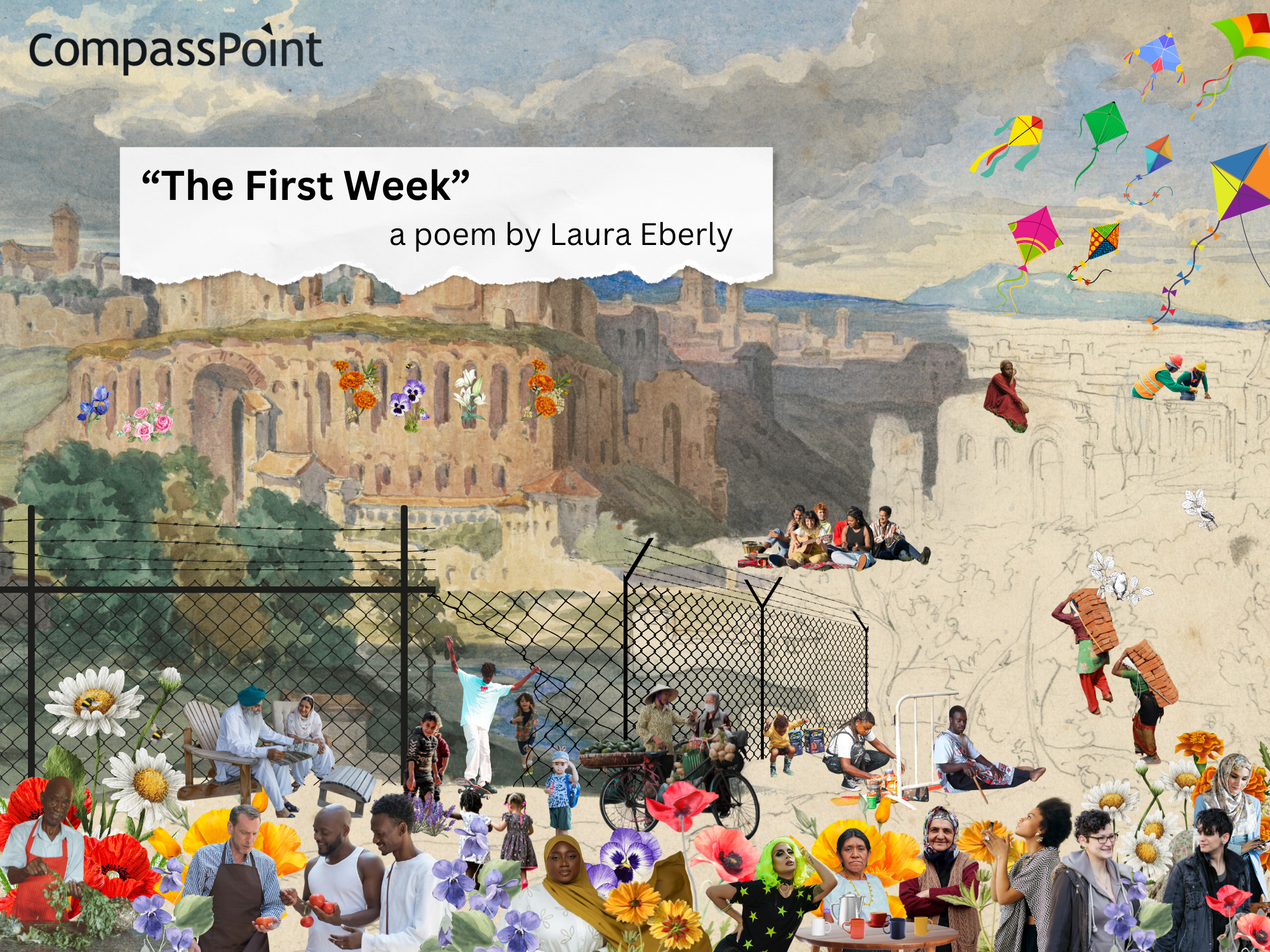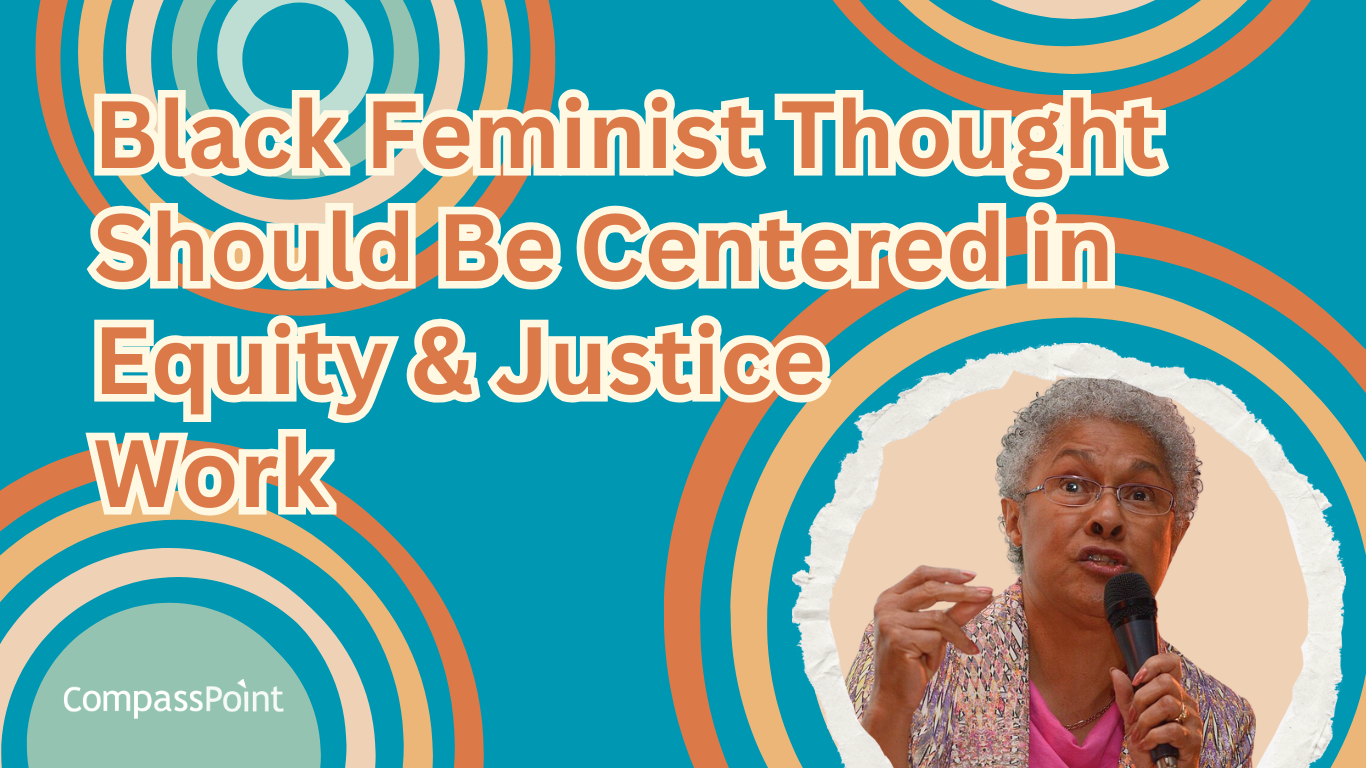In our blog this week, Project Coordinator Kad Smith explores the ways in which individuals can contribute to change by exercising influence, even without positional authority and the power and privilege that often go along with it. Do you agree with Kad?
“The Key to successful leadership today is influence,
not authority.” - Ken Blanchard
When I first sat down and began writing this, I worried that I'd start curating some thought piece that mirrored the 48 Laws of Power. If you stumbled across this expecting to land on some sort of beatitudes of "how to be influential" in either your organization, within a movement context, or in your community; well, I apologize — because influence just isn't as formulaic as one might like. It's fluid, it's dynamic, and it's evolutionary. Your ability to wield your influence is entirely unique to who you are. The exploration below is my attempt to identify how I've seen individuals successfully tap into their own respective influence and how I have done so myself.
Influence, Authority, and the Evolving Definition of Leadership
So first, let's define influence and authority in order to establish a shared understanding of these terms:
Influence: "The power to change or affect someone or something; the power to cause changes without directly forcing them to happen" (Merriam-Webster).
Authority: "The power or right to give orders, make decisions, and enforce obedience" (Merriam-Webster).
As a project coordinator at CompassPoint, I was hired into a position that historically hasn't had much formal positional power. In assessing my growth within the organization, I've realized that in the absence of positional power, harnessing my influence has been instrumental in positioning me to confidently articulate my actual and potential contributions to our practice. Our transition to Holacracy—a "system of organizational governance...in which authority and decision-making are distributed throughout...self-organizing teams rather than being vested in a management hierarchy" (adapted from https://en.wikipedia.org/wiki/Holacracy)—is one avenue that's enabling individuals within our organization to develop influence and have autonomy over their own body of work. (Read more about our experience with Holacracy here.)
And as a staff person who's had the benefit of working with clients on the movement level, I've seen how those on our societal margins can hold key influence within social movements. Movement leadership can take on a fluidity that organizations as institutions often don't allow. I can see how it's changing the way many nonprofits—including CompassPoint—are approaching organizational structures, decision-making, and leadership. Using this lens, we can re-evaluate and expand the definition of influence beyond just societal position, and create a radical new image of how organizations are structured.
In the absence of any formal positional authority—and in light of these shifts—assessing how I utilize my influence has made me much more intentional about how I navigate the organizational structure I'm working in and subsequently much more aware of the impact I can have.
Yet, growing our influence isn't done solely for the sake of "being influential." It is always done as a means to an end. In the absence of positional power or commanding authority over others, influence is a tool that is wielded in service of our own development and in service of the causes of the organizations we work with and for.
Understanding and Harnessing Your Influence
While harnessing influence is unique to each individual, I've observed a few overarching instances where you can exercise influence without authority. Here are a few areas to explore:
Embracing the Power of Your Person: You've got to know thyself. As cliché as this may sound, to maximize your influence in an organizational or movement context requires deep introspection and self-investigation. What are your strengths and how do you utilize them? What are your potential areas of improvement and what are the steps that you're taking to work on them? What motivates you and keeps you going? How do you communicate to your colleagues, your comrades, and the community you serve? By exploring all of these things (and beyond) you exhibit your efforts to find your place within your organization and movement. When doing that, people you interact with can reflect on what that might look like for themselves and are very likely to be influenced to engage in their own self-exploration and introspection. A team, an organization, or a movement full of people who are self-aware is a recipe for dynamism and, in my humble opinion, increases the potential for possible successful outcomes with whatever goal, task, or mission you are pursuing.
Relationships: Any community organizer will tell you the number one most important principle in organizing is building relationships. And in many ways, successfully organizing is about how you develop and utilize the influence you have. To be influential in an organizational or movement context, you have to value taking the time to build and nurture meaningful relationships. When positions give us authority over others, in my experience, our approach to relationships seem much more transactional and our assessment of the time those relationships need seems much more one dimensional. Inversely, absent of authority, I feel the relationships we build allow us to influence each other in more transformational ways and allow for more multi-dimensional interactions.
Listening: People want to be heard. In a world where everyone has so much to say and so much that they're feeling, listening is the number one way to develop influence in my opinion. I'm not talking about the type of listening where you're hearing what's said but not actually processing it, nor the listening that is in service of your own narrative, nor the listening that mandates you to be the savior who fixes people's problems. I'm talking about the type of deep listening that makes people feel truly heard, feel recognized, and feel valued for simply being themselves. And trust me, I don't mean to make this sound simple. This is one of the hardest skills to build. But once you can hone it in an authentic and genuine way, chances are people you've listened to will listen to you in return. And as Jay Z once said, “First I had their ears, now I have their hearts.” Our influence begins and ends with how willing we are to truly listen to folks and how much we desire to be truly heard.
By lifting up the importance of influence, I'm not advocating for the absence of organizational hierarchy, people stepping into positional leadership that grants them power, or delegitimizing the often appropriate need for formal authority. Having clear lines of authority can be healthy when authority is maintained with integrity and there is alignment around what the group values. We must continue to name and identify that we have the ability to influence our colleagues, our comrades, and our communities, without ever holding formal positions of power or titles that are intrinsically authoritative. By realizing this and fully stepping into it, we are empowered by the fact that wielding influence is essentially achievable by anyone. The same cannot be said about the ability to obtain an authoritative position due to various factors of social mobility and structural forces of oppression. As we intentionally try to create a radically different world that has more dynamic social justice organizations, broader social movements with less of a "leader out front," and societies where every single life is truly valued, decoupling the notion of influence from those who have wielded authority is imperative. It will humble us, it will awaken us, and hopefully, it will aid us all in our personal transformation.
Kad Smith is a project coordinator with CompassPoint. He provides project support on CompassPoint’s Cohort Leadership Programs and for various consulting contracts. He currently serves on the board of directors for the Berkeley Democratic Club and is a commissioner on the City of Berkeley’s Police Review Commission.
Other Blogs by Kad:





Submit a comment
(2) Comments
Jenny Escobar replied on Permalink
Thank you for contributing to my ongoing understanding of power that goes beyond and above the 'power over' model. I often grapple with this question as I navigate through different "positions of power" and feeling anxious that I will repeat the same authoritative entitled power that I experience at the receiving end by individuals who were granted power due to their privilege. As a professional woman of color I have found reassurance in the teachings and practices of our communities who view power as something that is rooted in relationships and collaboration, similar to your above contributions. I want to uplift your point on self reflection as an essential practice to changing how we transform power, and which I think is often left out of our attempts to relate to each other. This has been a practice that has provided me with in-depth, honest and often contradictory views of myself and how I understand my place in this world, and when I have taken action from this place is when I have had the most influence. Ultimately, influence and the 'power with' approach seems more rooted with the way I was taught to be in relationship to others. Thank you for the reminder!
KadSmith replied on Permalink
Wow thank you so much for this thoughtful response and for your analysis!